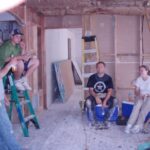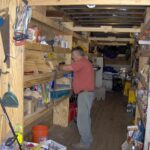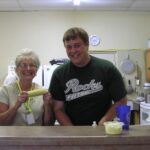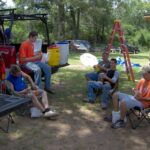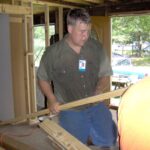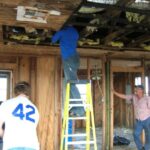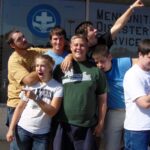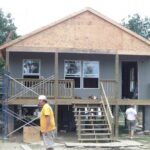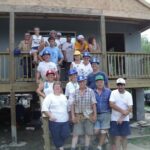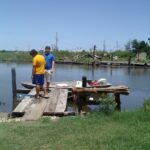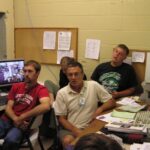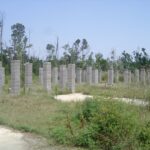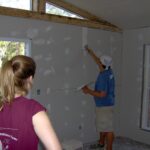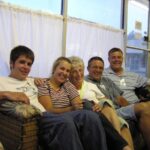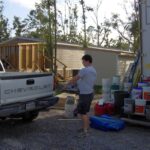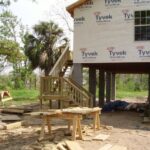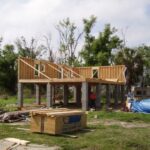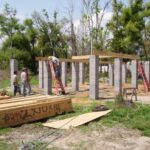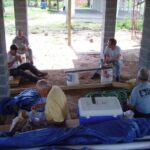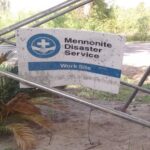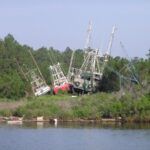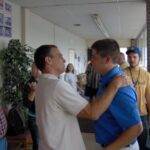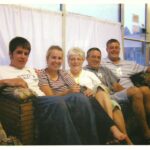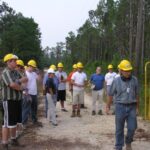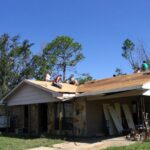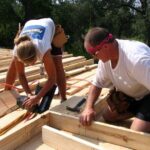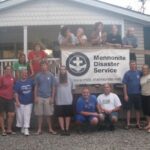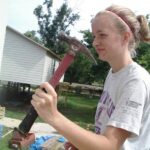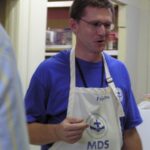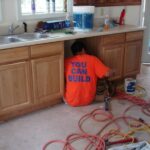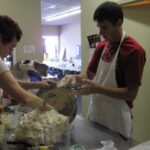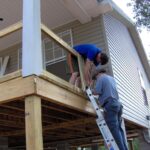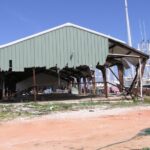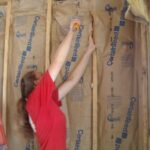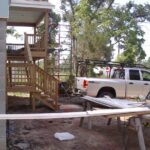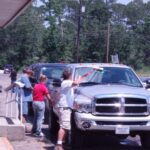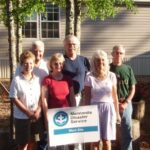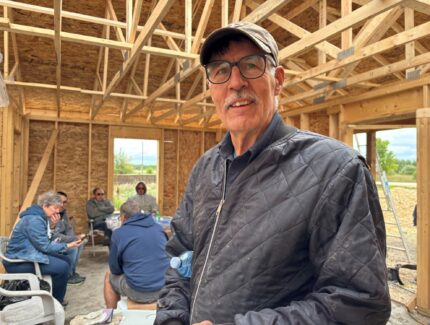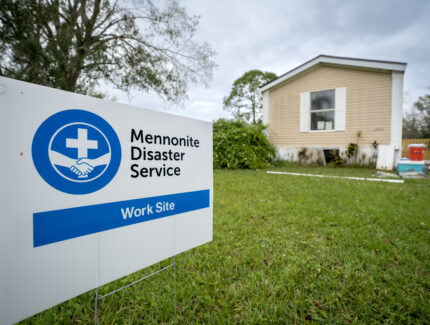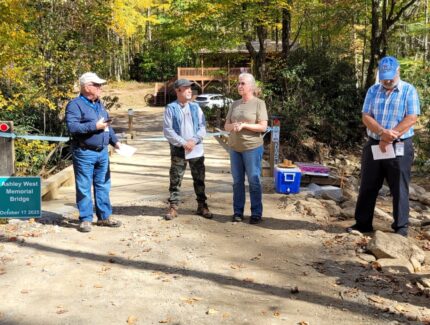
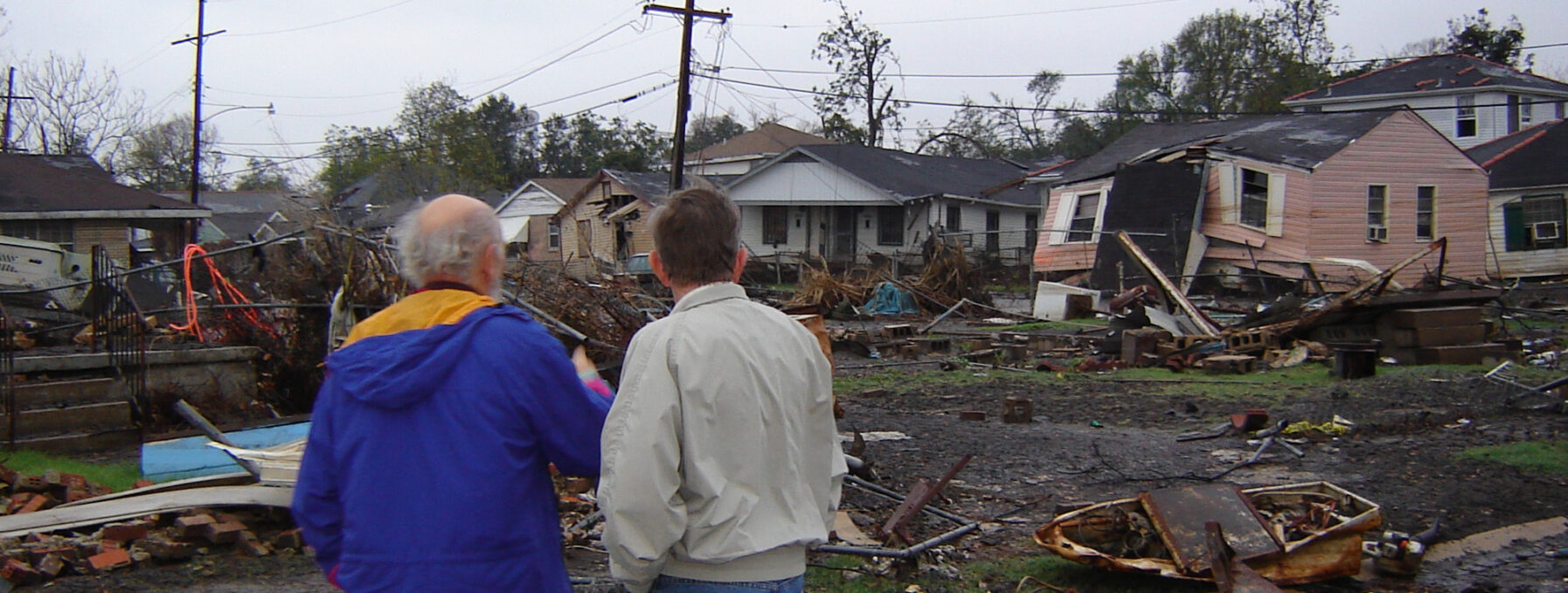
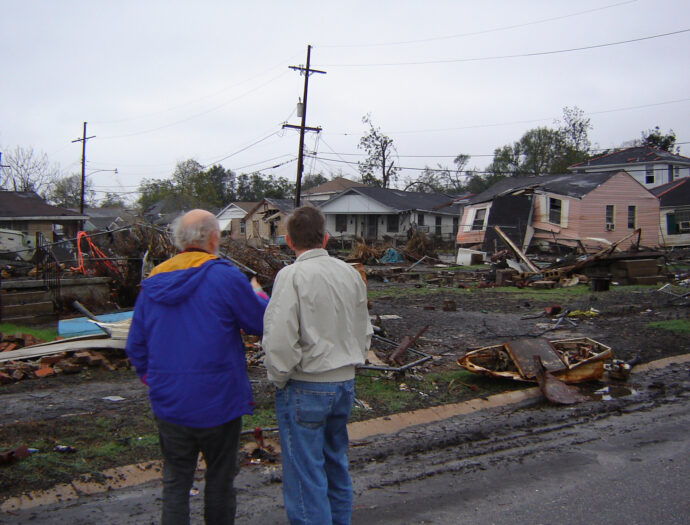
August 28, 2025
Twenty years later, Hurricane Katrina is still in hearts of service
The following feature story is one of a series commemorating the 20th anniversary of Hurricane Katrina, a disaster that tragically ended many lives, devastated dozens of cities and communities, and forever changed the fabric of disaster response. Three alumni of the Hesston College Disaster Management Program took time to share their recollections of serving as young people during the aftermath of Katrina—and how that experience still touches their hearts today.
Sometimes, Alicia Hertzler looks back at her journal entries from 2005, when she helped Hurricane Katrina survivors.
Today we toured New Orleans and some parts of it are just ruined. There are piles of debris outside every house and some of the markings on the houses said, “Missing Cat” or “Dead Dog” or “Dead Body in Back” or “DOA.”
Listened to some guys talking and they made me angry because they thought people down here should use their own money to help themselves.
For Hertzler, now Coordinator for Weekly Volunteer Retention with Mennonite Disaster Service (MDS), so much of that time is still vivid in her mind.
“We didn’t talk to any homeowners on the first trip—this was still part of the initial response and I’m surprised that a group of school kids were allowed to be there,” recalled Hertzler, who was then a freshman at Hesston. “We were cleaning up a church that was hopefully going to become a space for future volunteers to stay.”
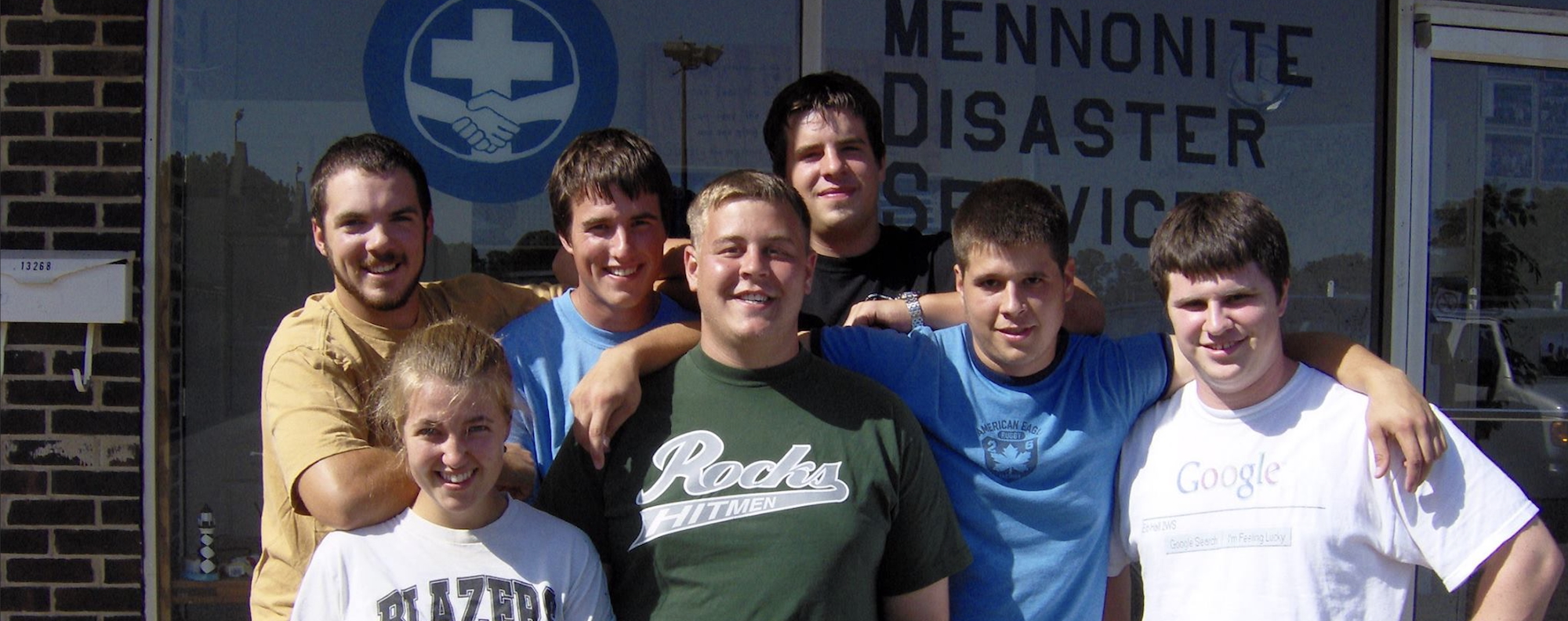
Bayou la Batre, AL. Alicia Hertzler.
Life-changing service
Now, because MDS response is often focused on long-term recovery, Hertzler doesn’t spend a lot of time focused on immediate response.
But she did in the aftermath of Hurricane Katrina—and it changed the trajectory of her life.
“It was eye opening and shocking and life-changing,” she said. “I had never witnessed disaster at that level, was unaware of the politics and decision-making involved in the process of applying for aid, and just beginning to understand some of the reasons why someone might come back over and over again to a place that regularly saw disaster.”
She was also beginning to understand why people come back to respond to disasters—over and over—throughout their lives.
For the next two summers, as part of the Disaster Management Program, Hertzler worked with young people in areas affected by Hurricane Katrina. In the process, she learned more about how MDS operates.
“I cried and gripped homeowners in long hugs, I wept in my bunk after long days of work where I wasn’t sure if I was leading the work correctly. I was not—I then cried in gratitude for crew leaders and project directors who took time to teach me how to correct my mistakes and gave me space to try it on my own,” she recalled. “My summers spent with MDS also showed me how incredibly moving it can be when people show up together to help others.”
Another journal entry from that summer:
MDS has brought frustration, joy, contentment, sadness, hopefulness, and bliss to my life.
For Hertzler, that continues to be true. She recalled when, during her second summer helping Hurricane Katrina survivors, as she was in line at the airport to board a plane to Louisiana, the person at the counter asked if she was traveling for business or pleasure.
“I informed her that I was headed to serve, to keep working on Katrina relief,” said Hertzler. “She stared at me in disbelief for a moment before saying, ‘I thought that was all done.’ I think about that interaction a lot.”
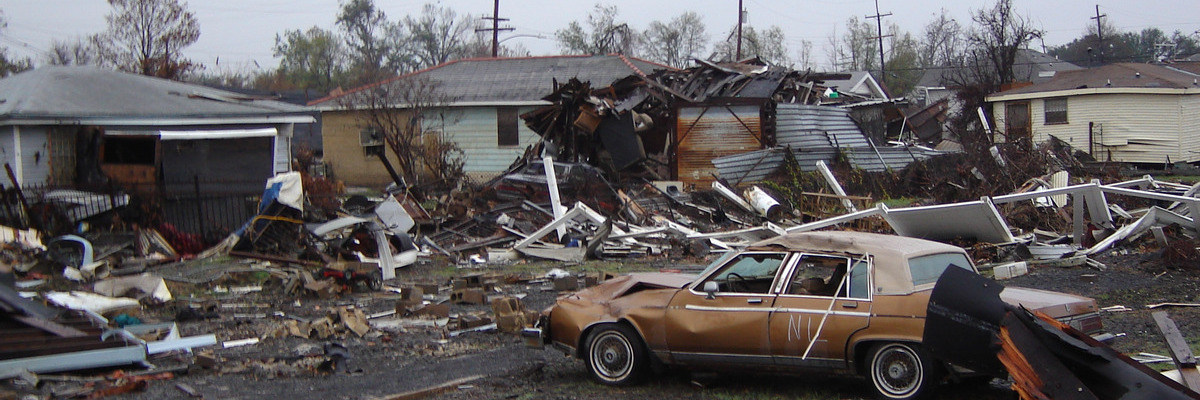
New Orleans, December 2005
Stories are not lost
Hurricane Katrina hit the U.S. Gulf Coast on August 29, 2005. The storm was one of the costliest and deadliest hurricanes in history, resulting in an estimated 1,833 deaths, hundreds of thousands of people displaced, and billions of dollars in damages.
Hertzler thinks a lot about how, in our age of immediate news and information, we move on quickly to the next big thing. “And how that means that a disaster survivor can go through such a life-altering event that takes years and potentially decades to recover from: some of your neighbors may never come back, it make take months or years to get back into some sort of permanent housing, aid may be difficult to come by and there are plenty of people who may try to take advantage of you in your time of greatest need,” she said. “You might have to start over with nothing but yourself and your family and the complicated feelings of grief and gratitude that come with that.”
She’s grateful that MDS continues the work of building physical homes. “And I hope we never forget to see the people who stand in front of us, to hear their names and acknowledge their immense loss, to show that their story is not lost but instead that we choose to hear and remember it,” she said. “To serve is such an act of rebellion in our world of individuality and self-focus and my time with MDS gave me a roadmap to do that.”
Not everyone who served with MDS in the wake of Hurricane Katrina ended up working for MDS. Krista Rittenhouse is Executive Director at Lancaster-based Advoz, a nonprofit that specializes in community-based mediation and restorative justice.
She served in Mississippi and Alabama in the summers of 2011 and 2012, and vividly remembers visiting Grand Bayou, located in the southernmost region of Plaquemines Parish in Louisiana. Grand Bayou is a remote village that is home to Indigenous people who have lived there for more than a thousand years.
“The only access was by boat, and generations of people had lived on the water,” recalled Rittenhouse. “For me, that was a totally new way of living.”
Even though she had been an exchange student in Ecuador, water living in the bayou was new to her. “The oil spills, and the damage, also stand out in my memory,” she added.
When she returned to the damaged areas a full decade after Katrina hit, still the empty lots stood out.
“Houses had never been rebuilt,” she said. “There were still a lot of visible reminders—pads that used to be foundations.”
For Rittenhouse, serving in a disaster response arena was one of her first intense experiences living in what she describes as an “intentional” community.
“When you spend enough time with people to be with them in your good moments and bad moments, those very much were some of the formative experiences that told me conflict resolution was something I not only cared about—but also have some gifts in,” she said. “There was a specific conflict between one of my student peers and one of the site leaders, and I was involved in repairing a breakdown that happened,” she recalled. “I think I helped the situation but I would probably do something different with the skills that I have now.”
Rittenhouse also learned in those years to think about the questions around which she would form her life and her career. “How do I have empathy for people who bring different assumptions about the world?” she asked. “How do I extend grace and suspend my judgement about the things I think are right?”
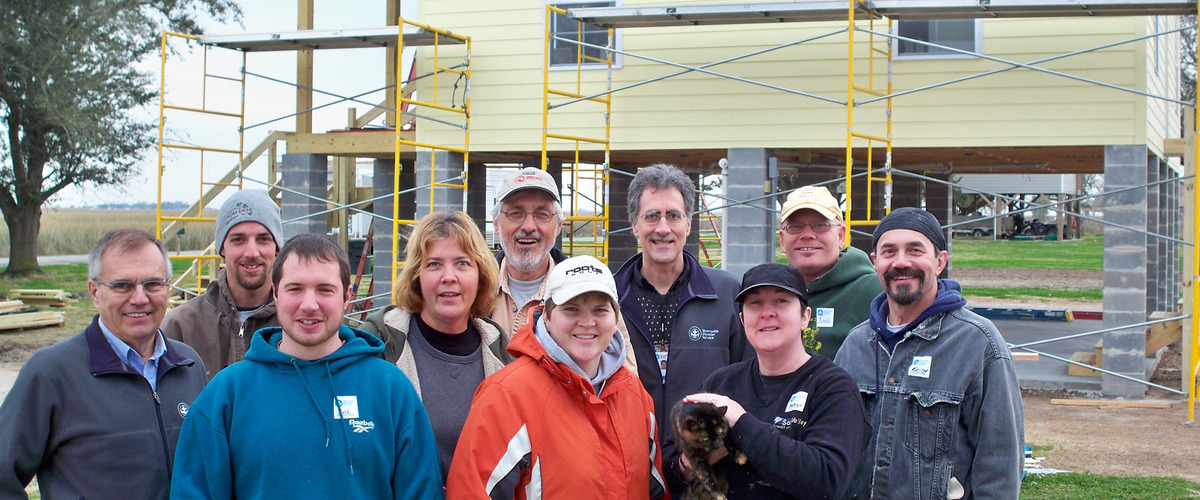
Cameron, Louisiana, February 2010
Putting people first
At the same time Rittenhouse was serving—in 2011—Darin Bontrager, now MDS Region 2 Operations Coordinator, served for three weeks in New Orleans.
He was 21 years old at the time.
“First, I was struck that MDS was still doing work after a storm that happened five years ago and driving through the city there were certainly still neighborhoods that were either severely damaged or destroyed,” he recalled. “There was a dissonance to observe those neighborhoods and then on the weekends visit the French Quarter and the touristy spots, and it was like the hurricane never happened and everyone had moved on, knowing that a mile or two away was a very different story.”
He also learned that an MDS project culture at the base and the worksites can shift dramatically, depending on who is serving as the project leadership at that time. “Project leadership is a tremendous challenge, but it can also be quite rewarding,” he said. “You are being watched very closely, and how you handle challenges, the heat, and other circumstances as a leader will influence whether a weekly volunteer chooses to serve again with MDS.”
As a young person, he appreciated the project leaders who wanted to get to know him, were ready to explore the local culture together, and provided opportunities for him to learn new skills, both technical and in working with volunteers from different cultures and different skill abilities.
“My idea of a fun time isn’t necessarily sanding drywall when it’s 95 degrees with 95 percent humidity, but I have always appreciated the way relationships grow and deepen when different people engage in a service project that forces us out of our comfort zones and to work together,” he said. “Furthermore, we get to do something together that is bigger than ourselves that we could not achieve as an individual. “
To this day, he sees MDS creating this environment daily with people from all walks of life out on the project sites. “I knew I wanted to make a difference in the world through my career, as I would find very little motivation by solely pursuing money,” he said. “I am grateful for the opportunity to step into a work culture and organization that puts people first—clients, partners, volunteers, and employees—and does it all with integrity.”
Susan Kim, MDS Writer
The collection of photos below are from Alicia Hertzler
Photo Gallery
